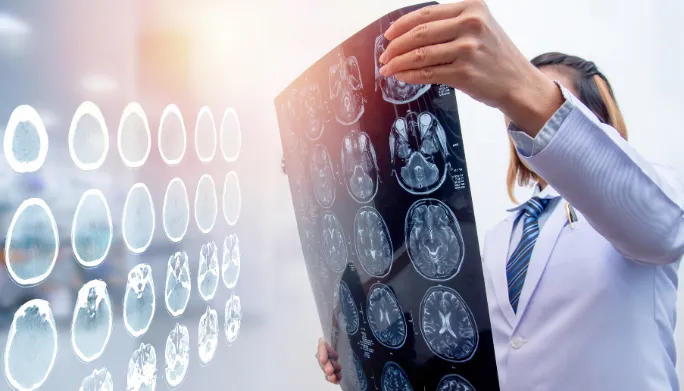Traumatic Brain Injury (TBI)

What is a Traumatic Brain Injury (TBI)?
Traumatic Brain Injuries (TBIs), resulting from external forces like falls or accidents, disrupt brain function, ranging from mild concussions to severe cognitive impairments. Mayo Clinic, a leading healthcare resource, provides detailed insights into TBI causes and symptoms.
The Integral Role of Occupational Therapy in TBI Recovery
Occupational Therapy (OT) is essential in TBI rehabilitation, focusing on enhancing daily life skills and independence. Personalized care plans, motor skill recovery, and cognitive rehabilitation are fundamental aspects of OT. The American Occupational Therapy Association offers comprehensive resources on OT’s role in TBI.
Personalized Care Plans
Occupational therapists (OTs) initiate TBI rehabilitation with thorough assessments, considering factors like injury severity, patient history, and lifestyle. This evaluation is crucial in developing personalized care plans that align with each patient’s unique challenges and goals. These plans may include setting specific, measurable objectives for physical, cognitive, and emotional recovery. An integral part of this process is involving the patient and their support network in decision-making, ensuring the care plan resonates with their personal aspirations and daily routines. This collaborative approach not only fosters a sense of ownership and motivation in patients but also ensures that therapeutic interventions are practical, relevant, and adaptable to real-life situations, thereby enhancing the effectiveness of the rehabilitation process.
Enhancing Motor and Cognitive Skills
In TBI recovery, enhancing motor and cognitive skills is pivotal. Occupational therapists employ a range of techniques and exercises designed to restore motor functions, such as hand-eye coordination, balance, and fine motor skills crucial for daily tasks like writing or dressing. This rehabilitation often includes task-oriented activities, simulated environments, and assistive technology, tailored to mimic real-life scenarios. Cognitive rehabilitation is equally important. OTs work on improving attention, memory, executive functions, and problem-solving skills. Through cognitive exercises and real-life tasks, patients gradually regain their ability to plan, remember, and execute tasks effectively. Progress is regularly monitored and strategies are adjusted to match evolving capabilities, ensuring a dynamic and responsive approach to rehabilitation.
Adaptive Techniques for Daily Living
OTs introduce adaptive tools and techniques to assist TBI patients in everyday activities, ensuring safety and independence.
Emotional Support and Behavioral Management
Occupational therapists address emotional and behavioral challenges post-TBI, providing coping strategies and emotional regulation techniques.
Advocacy and Education
Educating patients and families about TBI and its impacts is a key responsibility of OTs, fostering understanding and effective management of the condition.
Transition to Work or School
OTs facilitate TBI patients’ return to work or school, providing necessary adaptations for a smooth transition.
Leisure and Social Reintegration
Encouraging participation in social and leisure activities, OTs help improve overall well-being and life satisfaction.
Occupational Therapy’s Vital Contribution to TBI Rehabilitation
Occupational therapy plays a pivotal role in the journey of TBI recovery, focusing on holistic rehabilitation to enhance life quality. The Brain Injury Association of America provides additional resources and support for individuals and families dealing with TBI. Contact us for more information.


